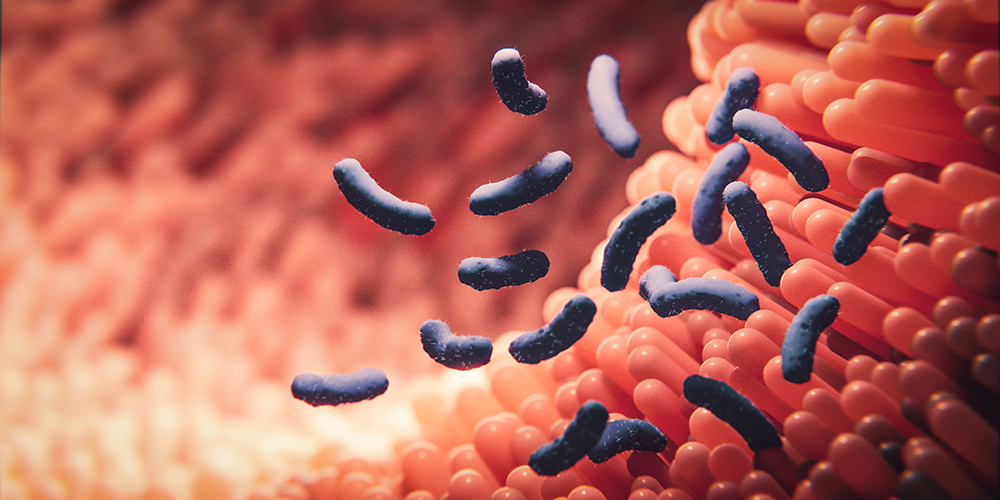Teaching

The degree programs offered by the University of Basel to address sustainability issues are both broad and deep in their scope. Over 18 degree programs offer sustainability-related classes, some of which include their own specialization modules. The interdisciplinary master’s degree program in Sustainable Development offers the only opportunity of its kind in Switzerland to earn a bona fide degree specifically in this field. In addition, a separate certificate program encompassing four classes offers interested students from all subject areas a chance to learn about sustainable development. To top off the academic programs, two online courses (MOOCs) are offered on the topics of energy and health.
Goals 2019 - 2021
Building on the 2018 database (see "Status 2018"), the University of Basel developed goals and actions for the 2019-2021 timeframe to further develop sustainability in teaching.
Making sustainability-related courses more visible and easier to find
- Cataloging all courses related to sustainability and preparing a directory of these courses each semester. Raising awareness about sustainability-related courses.
Sustainability Office
Increasing the number of students attending sustainability-related courses in fulfillment of their elective credit requirements
- Optimizing communications, in particular the Transfaculty Cross Section Program Sustainable Development (TQNE), e.g. in UniNews, on social media, at information events, changing course dates, etc.
Sustainability Office
in collaboration with head of the TQNE program
Successful implementation of the IMPULS funding program for sustainability in teaching
- Funding for at least three courses per semester through the end of 2020
Sustainability Office
Status 2018
Sustainability in the curricula of the University of Basel
Studying at the University of Basel covers a wide spectrum of sustainability-related topics and allows students to explore the challenges presented by climate change, limited resources and migration. At the same time, it promotes the ability to identify and analyze the problems of sustainable development in broader contexts and to develop sustainable solutions.
To evaluate and describe the academic programs relating to sustainability at the University of Basel, all degree programs were categorized according to the sustainability focus at course, module or class level. The focus and specialization of the various curricula can vary greatly in this regard. The following table illustrates the breadth of this spectrum:
Degree programs related to sustainability
Category 1
Degree program explicitly related to sustainable development
Faculty of Humanities and Social Sciences
Faculty of Science
Faculty of Business and Economics
- Master in Sustainable Development
Category 2
Degree program with specialization modules explicitly devoted to the topic of sustainability in an interdisciplinary context
Faculty of Humanities and Social Sciences
- Master in Changing Societies (Module: resources and sustainable development)
- Master in European Global Studies (Module: environment and sustainability)
- Master African Studies (Modules: environment and development; culture and society)
Faculty of Business and Economics
- Master in Business and Economics (Major: international trade, growth and the environment)
Category 3
Degree program with several classes or disciplinary specialization in the area of sustainability
Faculty of Science
- Bachelor Geowissenschaften (earth sciences)
- Master Geowissenschaften (earth sciences)
- Master Ecology
- Master Plant Science
- Master Nanowissenschaften (nanoscience)
- Master Epidemiology
Faculty of Humanities and Social Sciences
- Bachelor Geographie (geography)
- Master Geographie (geography)
- Master Soziologie (sociology)
- Master Politikwissenschaften (political sciences)
- Bachelor Osteuropa-Studien (eastern european studies)
Faculty of Theology & Faculty of Business and Economics
- Master in Religion, Economics and Politics
Faculty of Business and Economics
- Bachelor in Business and Economics
In addition to the degree programs listed above in categories 1 through 3, various other degree programs offer individual classes devoted to topics of sustainability.
The master’s degree in Sustainable Development Master in Sustainable Development at the University of Basel offers a specialized degree with an equal footing in three faculties and covers both the theoretical foundations of sustainable development as well as methods for dealing with the challenges facing society today. Classes with an interdisciplinary structure are the common thread weaving together the entire course of studies. The past focus topics of energy and water reflect the research expertise within the relevant faculties. Since the fall semester 2017, the degree program has been offered in English to make it even more appealing to an international audience.
Master in Sustainable Development
67
59
49
56
In 2018, the University of Basel began offering a new master’s program called Changing Societies Masterprogramm Changing Societies, which explores societal transformations – with a specific focus on the aspects of immigration, conflicts and resources. The interdisciplinary specialization module “Resources and Sustainable Development” deals explicitly with the topic of sustainability.
Highlight
In the WWF study guide for economics on the topic of sustainable development in the degree programs at Swiss universities, the University of Basel is among the universities offering the broadest coverage of sustainability topics, both at bachelor’s and master’s level.

First and foremost, the University of Basel is committed to offering a broad range of elective courses. We never want to force anyone to do anything. That would hardly be a sustainable approach either. We want to open up opportunities. And many students are taking advantage of the classes in the areas of sustainability, energy and the environment.
Prof. Dr. Hannes Weigt, Energy Economics
Degree programs for interested students from all subject areas
For more than 15 years, the Transfaculty Cross Section Program Sustainable Development (TQNE) has been offering bachelor’s or master’s students four classes in which they can earn credit points towards fulfilling their elective requirements. The thematic focus of the program is currently sustainability and food. Students can earn a certificate after successfully completing all of the classes.
A: Perpectives of Natural Sciences
28
33
27
26
B: Perspectives of Social Sciences
42
39
24
24
C: Perspectives of Economics on Sustainability
-
16
9
8
D: Interdisciplinary Approach to Sustainability
-
7
9
6
Massive open online courses
Two massive open online courses (MOOCs) offer students from the University of Basel and other universities, as well as other interested parties, the opportunity to further explore research focuses on sustainability-related topics in an international environment.
Project IMPULS
In 2018, the University of Basel received funding from U Change, a program organized by the Swiss Academies of Arts and Sciences to implement the IMPULS project. One goal of IMPULS is to make sustainability part of teaching activities. Beginning in the fall semester 2019, the project will offer funding to lecturers and students who, during their coursework, conduct projects related to the UN Sustainable Development Goals (SDGs).
Sustainability in everyday teaching
In addition to considering ecological resources, sustainability in everyday teaching activities also means that teaching can be adapted to an increasingly complex environment, i.e. as sustainable learning through academic programs offering the appropriate degree of innovation.
The University of Basel is doing this, among other things, with its strategy for digitalization in teaching. The University of Basel wants to give its students the qualifications they need for life, learning and working in an increasingly digital society. It has two main objectives in this regard: (1) Students should be well-connected as they learn in digital environments that have a close tie to research and practical applications (“connectedness”) and (2) be able to confidently navigate open virtual worlds while being cognizant of data protection, data security and intellectual property (“openness”), for example, so that they can utilize the available learning resources and tools in their studies or participate in public discourse in scientific communities.
Best practices - DigiLit: DigiLit provides a set of best practices for sustainable everyday teaching activities at the University of Basel. Lecturers at the University of Basel can digitize articles from journals or individual chapters from books for their classes at no charge and upload them to the ADAM learning platform.
The digital reserved reading system (Semesterapparat) eliminates the need to make copies and conserves resources used to copy or print out texts, because they can be read and marked up online. In addition, DigiLit offers easier access to the required teaching materials, because all students in a class can access the documents in ADAM at the same time. The number of articles put on DigiLit is increasing every year. In 2017, there were 407 articles that no longer had to be copied; in 2018, there were 452.


